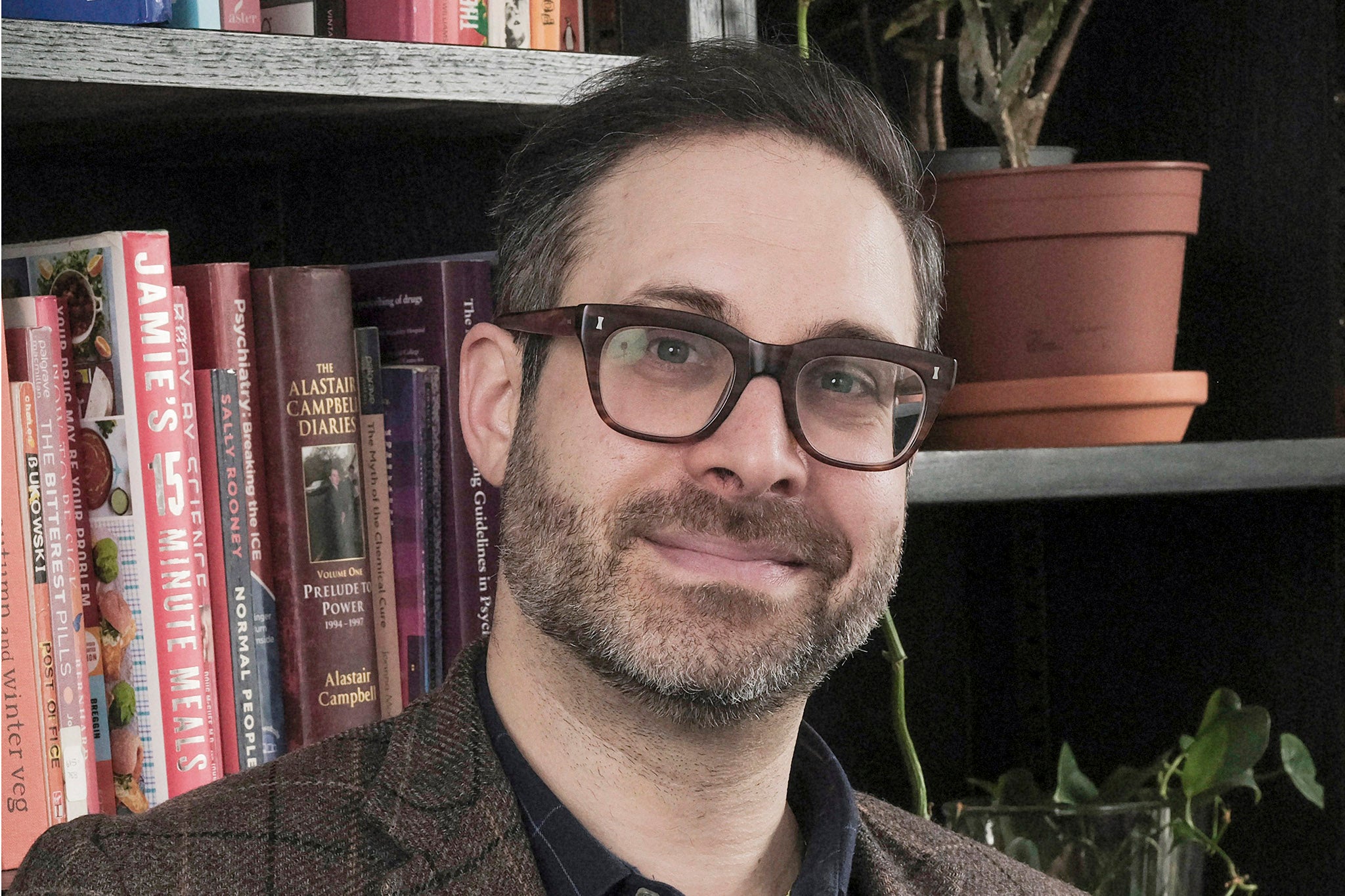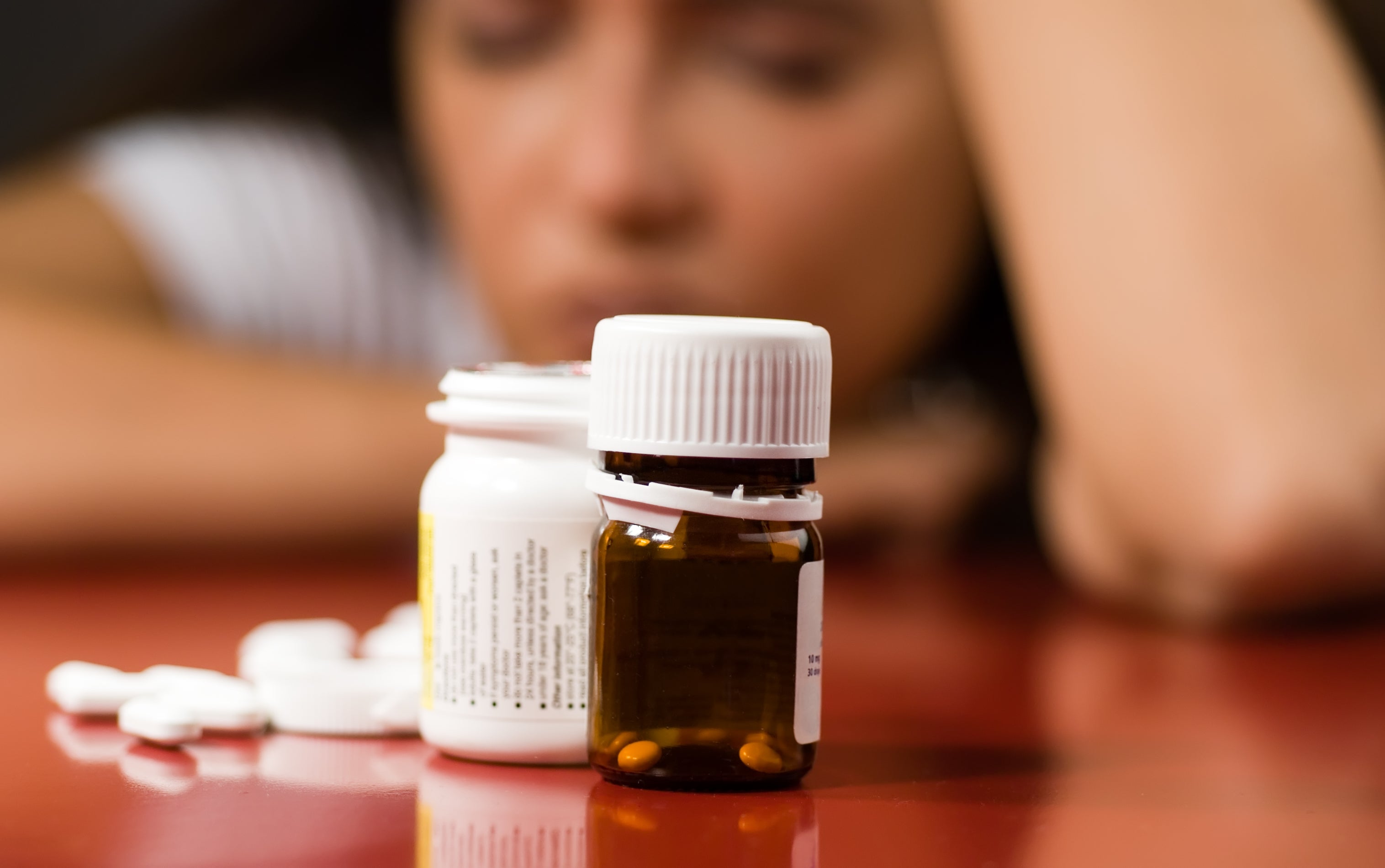For decades, antidepressants have been the cornerstone of mental health treatment in Britain. For much of that time, they’ve been highly stigmatised – deemed to be symptomatic of weakness or dependency, or seen as a “zombie pill” that numbs emotions and drowns out personality. Now, more people are taking antidepressant medication than ever before: record numbers, in fact. In the UK, 8.89 million adults (almost one in six) were prescribed them – a slight increase from 8.7 million the year before. But, while prescriptions have soared, a parallel problem is becoming harder to ignore: what happens when patients try to stop taking them?
Or specifically, what happens when they try to stop taking SSRIs – selective serotonin reuptake inhibitors – the most common type of antidepressant. This class of drugs – you might recognise citalopram and fluoxetine (Prozac) – is prescribed not only for depression but for anxiety disorders, post-traumatic stress disorder (PTSD), obsessive-compulsive disorder (OCD) and even chronic pain.
Compared with older drugs to treat the same illnesses, they’re much safer and, as many people find, are adept at relieving overwhelming symptoms that can all too often stop us in our tracks when it comes to day-to-day functioning.
They’re also quick to access and, broadly, seem to work for most people quite well. Around a third of those prescribed SSRIs find that they have a complete remission of their symptoms, while another third show “significant improvement” during longer-term treatment, according to meta-analyses published by Cambridge University Press.
Research also shows a significant reduction in relapse and a measurable improvement in quality of life for many. Yet, they’ve also long occupied a complicated space in society and psychiatry.
They’re often portrayed as overprescribed or framed as “addictive” despite clinical distinctions between dependence and withdrawal. Particularly in the US, they can be ruthlessly entangled in conspiracy theories. Often they’re the focus of “scandal” suppressed by “Big Pharma” and longstanding dissent within psychiatry criticising the use of anti-psychotropic drugs.
Their growth in popularity can’t be separated from the cultural moment that surrounded SSRIs in the 1990s – the era of “Prozac Nation”. The drugs, approved for use in the late Eighties, were marketed as safe, effective and free of the sedative or addictive elements of their predecessor alternatives. Sales soared and, as the millennium approached, there was a widespread, now widely disputed, belief that depression was simply a “chemical imbalance”, fixable with a simple blue and white pill.
But, decades after Prozac first hit the shelves, it’s the experience of coming off them that has now taken centre stage: withdrawal effects, once dismissed or minimised, are now firmly on the radar of both patients and clinicians, raising new questions about how these drugs should be prescribed and managed.
By now, most people who have come across SSRIs or taken them themselves will know that stopping them abruptly is an absolute no – and much more likely to lead to symptoms that range from dizziness and “brain zaps” to insomnia, panic attacks and emotional instability. Others experience flu-like symptoms, stomach cramps or strange dreams. In some cases, this can also lead to suicidality.

It’s why “hyperbolic tapering” has recently become a much-discussed part of de-prescribing – especially for those who have been on SSRIs for a number of years – and forms the basis of a programme called Outro, being pioneered by Dr Mark Horowitz, an Australian psychiatrist and researcher based in London. His own attempt to taper off antidepressants ended in sleeplessness and derealisation.
“I was not a happy person in my early twenties,” he explains. “It was a lot to do with being unhappy with the course I was doing at university. I was given an antidepressant – escitalopram, or Lexapro in America – which I took for many, many years. I did a PhD in how antidepressants work at King’s College in London – the sort of cliché, trying to work out what was wrong with me and my family. At the end of my degree, I read a paper about withdrawal effects from antidepressants, which I found pretty startling, because I’d never heard about them before.”
Horowitz says he had vaguely wondered whether some of the less pleasant symptoms he’d been experiencing, like fatigue, were because of the SSRI he was taking, which stimulated him to try and come off them altogether. “So I did it in what I thought was a very slow way, over several months – much slower than the National Institute for Health and Care Excellence (NICE) guidelines recommend.
“And when I got down to a very low dose, my world basically exploded. I had trouble sleeping. But the worst thing was I would wake up in the morning in a state of full-blown terror like I was being chased by a wild animal.”

He went back on the drugs for a few months and did more research, eventually developing a theory about hyperbolic tapering, sometimes called the Horowitz-Taylor method, since it was developed alongside another professor.
“It basically involves coming off antidepressants very slowly over months and sometimes years, going down by very small amounts for the dose down to extremely small final doses before stopping, in a way that you can’t do with normal tablets from the store,” he explains. “You’ve got to use liquids to make up much smaller reductions.”
Horowitz says that “there’s a complicated chemistry reason for it – basically, very small doses of these drugs have much larger effects on the brain than you would guess”. “The effort it takes to go from 50mg to 5mg,” he explains, “you have to do all over again to get from 5mg to zero.”
He believes the medical community has underestimated the problem.
While NICE updated its depression guidance two years ago, now recommending antidepressants be tapered “over weeks to months” and, in some cases, much longer, the organisation stops short of endorsing hyperbolic tapering as standard practice.
We must be cautious to balance popularity of ideas with truth. Yes, doctors make mistakes, but so do advocates, patients, businesses and scientists.
Ben Janaway, a consultant psychiatrist
Part of the reason is evidence. While patient reports are compelling, high-quality clinical data is still thin. A 2025 JAMA Psychiatry analysis concluded there’s limited proof that ultra-slow tapers are necessary for most. Many people stop successfully on standard schedules without prolonged distress. As psychiatrist Dr Sameer Jauhar has pointed out, the challenge is working out who needs extended tapers and who doesn’t.
Much of this is down to the individual – but it’s muddy water. Some coming off SSRIs and suffering symptoms of mental ill-health say they feel “gaslit” by GPs who say that their depression or anxiety is simply coming back when they’re coming off the drugs and suffering withdrawal symptoms. In reality, it’s a very difficult call to make. And the drugs shouldn’t be seen as some sort of miracle cure: most of the time, it takes much more than simply popping a daily pill to successfully treat mental illness.
Dr Ben Janaway, a consultant psychiatrist, also notes that spotting the difference between withdrawal and relapse requires clinical expertise, and the two shouldn’t be conflated. He concedes that withdrawal can be severe and supports more personalised tapering.
In Canada, guidelines now recognise that up to 50 per cent of long-term users may experience discontinuation symptoms. In surveys, two-thirds of those on SSRIs for more than three years reported moderate to severe withdrawal, and in June, research by the University of British Columbia noted there needed to be a re-evaluation of prescribing practices, particularly in primary care, and suggested a distinction needed to be made between withdrawal and relapse of an underlying mental illness.
But Janaway also points out that we should be wary of any scaremongering rhetoric that presents SSRIs as a scandal. “We must be cautious to balance the popularity of ideas with truth,” he warns. “Yes, doctors make mistakes, but so do advocates, patients, businesses and scientists.

“No medication is without risk, and no treatment without consequence. Treatment is almost always a balance between the ideal of resolving symptoms, and the reality of creating others.”
Janaway also raises questions about cost. While a version of Horowitz’s Outro tapering programme is run via an NHS clinic in northeast London, and is open to referrals from all GPs in England, his subscription-based US programme costs up to $300 (£224) per month, and patients could be under it for as long as two years. In the UK, liquid formulations are often prohibitively expensive, he adds.
There are also wider questions of practicality. Implementing hyperbolic tapering at scale would require changes in prescribing practice, pharmacy provision and GP training. Plus, it’s potentially very arduous and impractical for patients themselves.
What’s clear is that withdrawal deserves far more recognition than it’s had so far. That could mean more flexible prescribing options for different patients with different needs – using liquids and small doses, as Horowitz advocates for. There is a clear case for more investment and, crucially, better training for doctors around mental health conditions, which are increasing across most ages. The rise of services like Outro shows that sometimes, coming off antidepressants can be just as complicated as starting them.
Ultimately, SSRIs are a vital tool – life-changing or even lifesaving for many – in the treatment of mental illness. But there’s a long way to go in terms of our understanding of how they work, and how coming off them works, too, all of which demands a lot more conversation and a lot more nuance. And, crucially, a healthcare system that’s prepared to support people who are struggling at every stage of their journey – not just the beginning.
If you are experiencing feelings of distress, or are struggling to cope, you can speak to the Samaritans, in confidence, on 116 123 (UK and ROI), email jo@samaritans.org, or visit the Samaritans website to find details of your nearest branch
If you are based in the USA, and you or someone you know needs mental health assistance right now, call or text 988, or visit 988lifeline.org to access online chat from the 988 Suicide and Crisis Lifeline. This is a free, confidential crisis hotline that is available to everyone 24 hours a day, seven days a week. If you are in another country, you can go to www.befrienders.org to find a helpline near you
Source link

